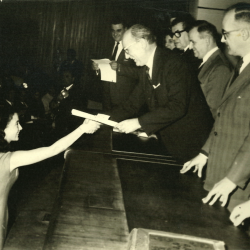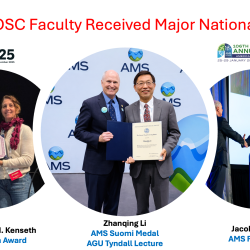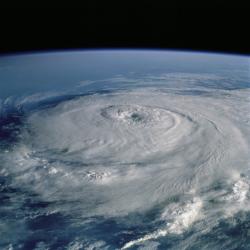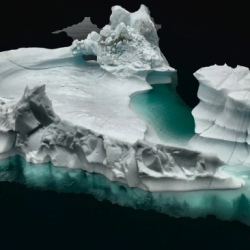Congratulations to Rachel Wegener on receiving the Richard Payne Graduate Fellowship
Congratulations to Rachel Wegener, AOSC’s first-year grad student (and her mentors, Jacob Wenegrat and NOAA’s Veronica Lance), for receiving the College’s Dr. Richard Payne Graduate Fellowship. The fellowship is worth $5000 and was awarded for studying marine heatwaves.
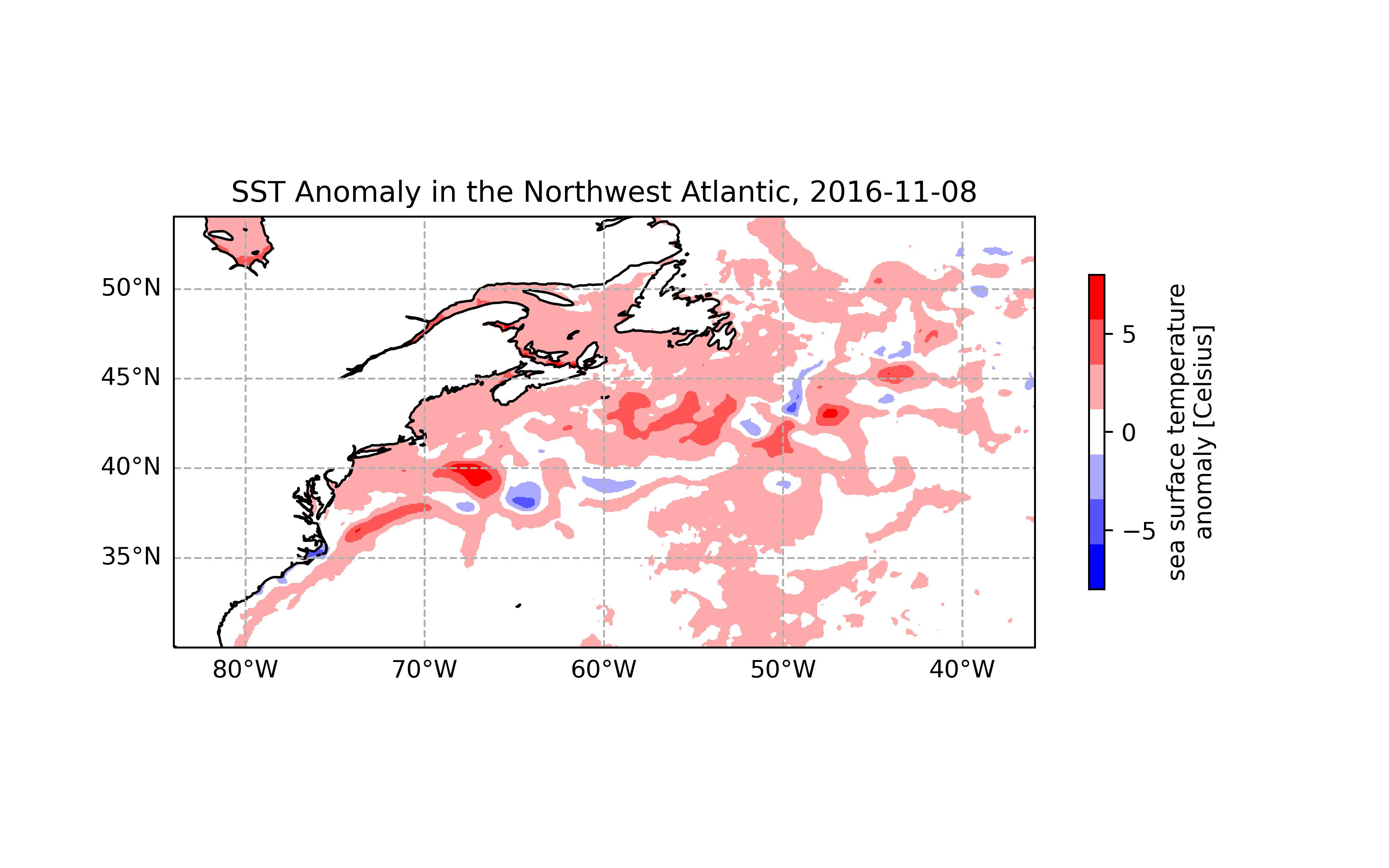
Abstract:
Over the past decade oceanographic research has identified the significance of anomalously warm ocean events. These events, termed marine heatwaves (MHW), have doubled in frequency and increased significantly in intensity, over the period from 1925-2016. The complex effects of MHWs combine physical, biological and economic influences, and have an important link to policy through fisheries permitting and management structures. Forecasting capabilities are a promising avenue through which to support fisheries management, however our forecast capabilities are limited due to insufficient understanding of MHW drivers. This project will facilitate impactful forecasting by growing our understanding of MHW drivers, with a focus on the economically important coastal region. To better understand drivers this work will create high resolution maps of MHW using the computer vision software OceTrac and 5km or better satellite imagery. Ocetrac provides a novel approach to labeling spatial and temporally continuous phenomena in satellite imagery. Additionally, one or more regions of focus will be chosen based on dynamic interest and ecological impacts. Additional datasets will be brought in as needed to investigate the mechanisms underlying MHW in the regions of interest. In sum, this study aims to use high resolution satellite imagery to increase understanding of MHW drivers, with the potential to increase the forecasting effectiveness of increasingly common MHW events.
- Log in to post comments



